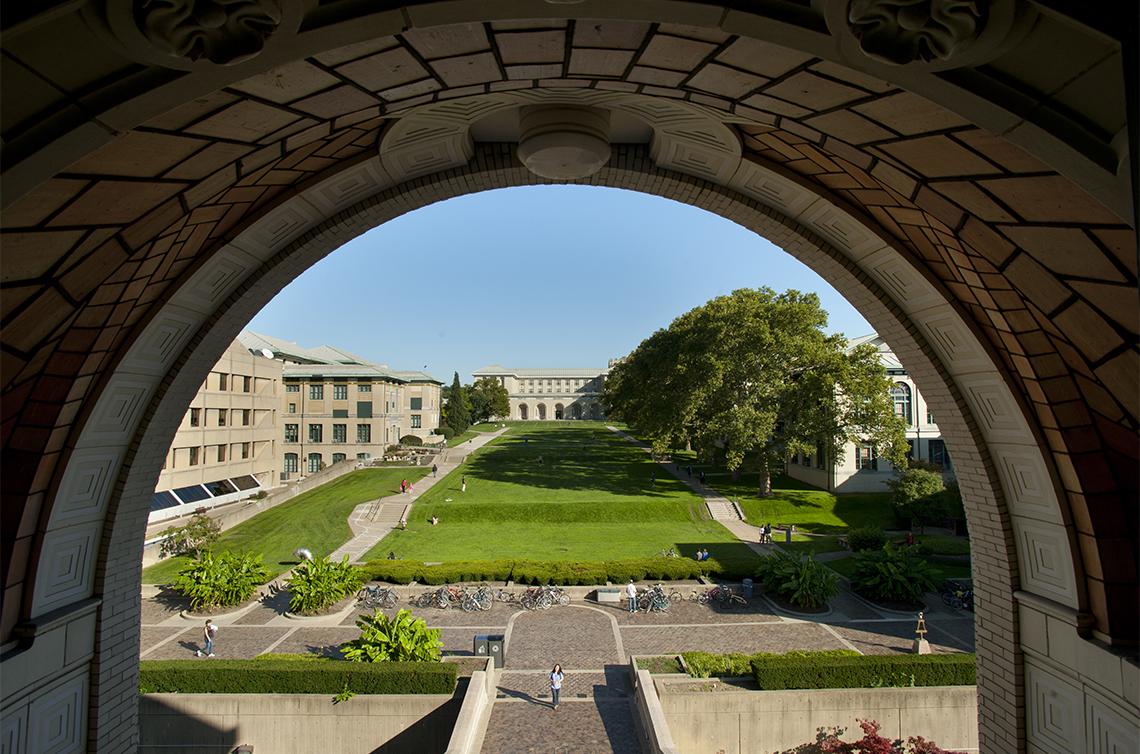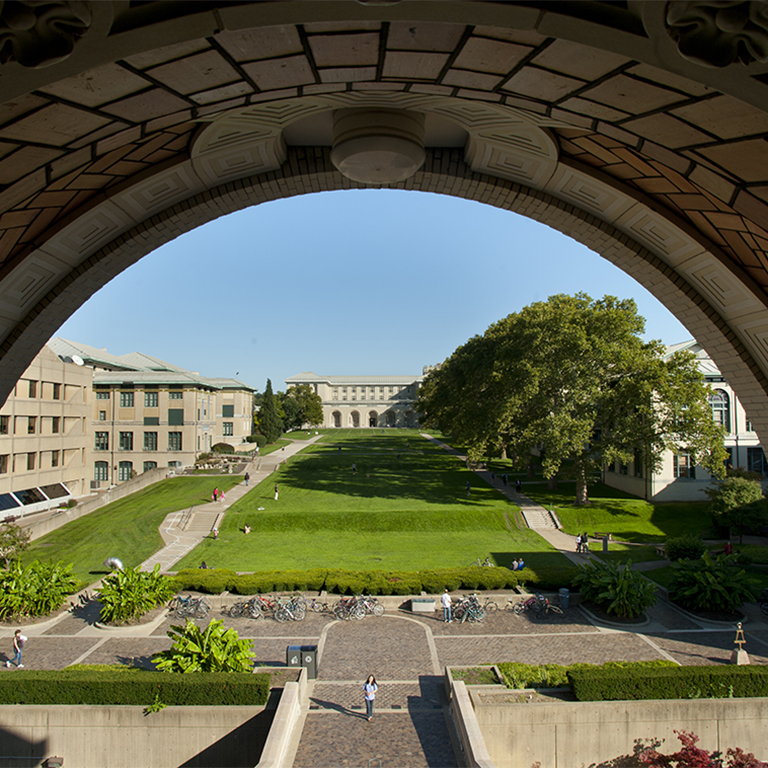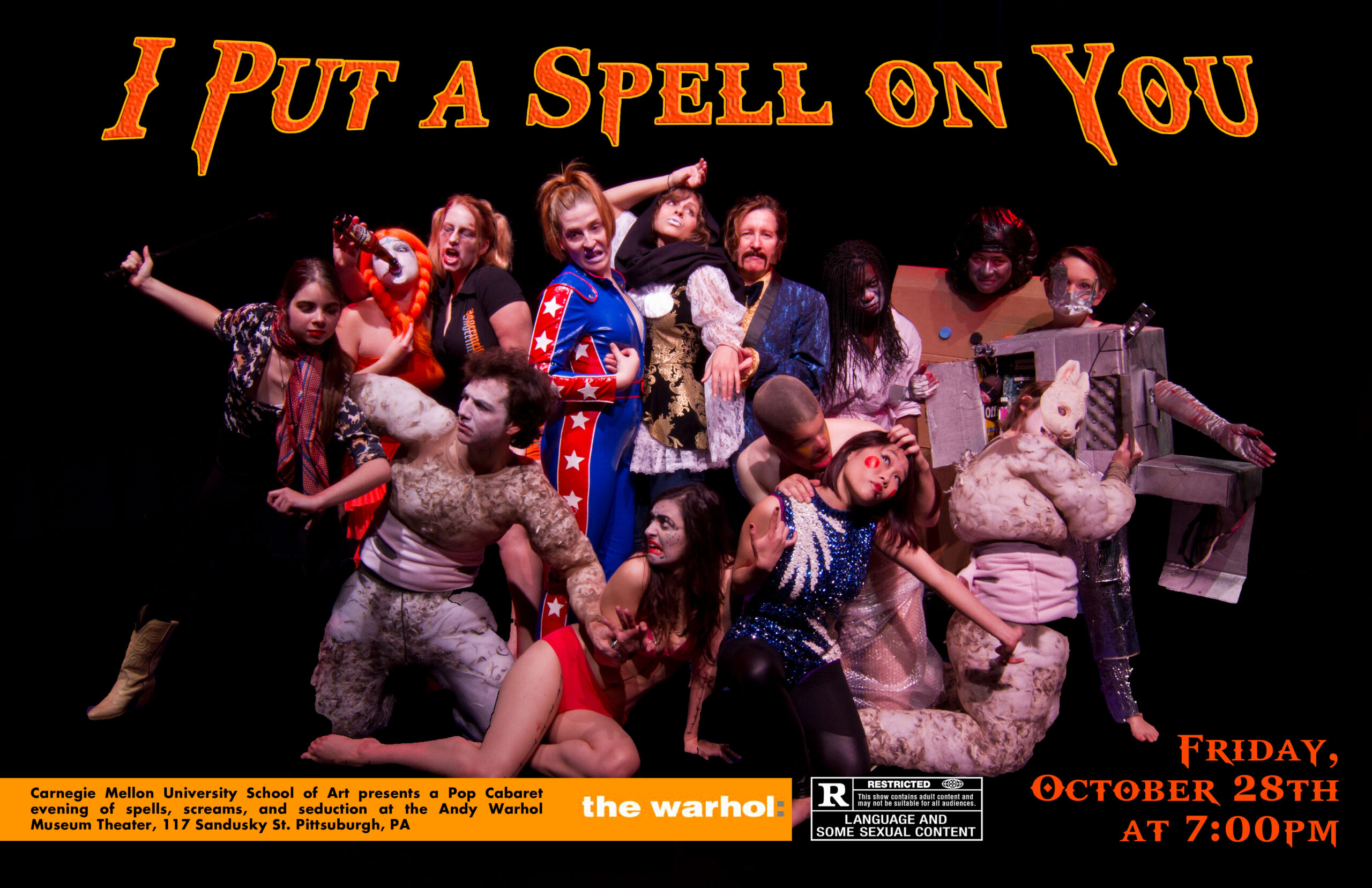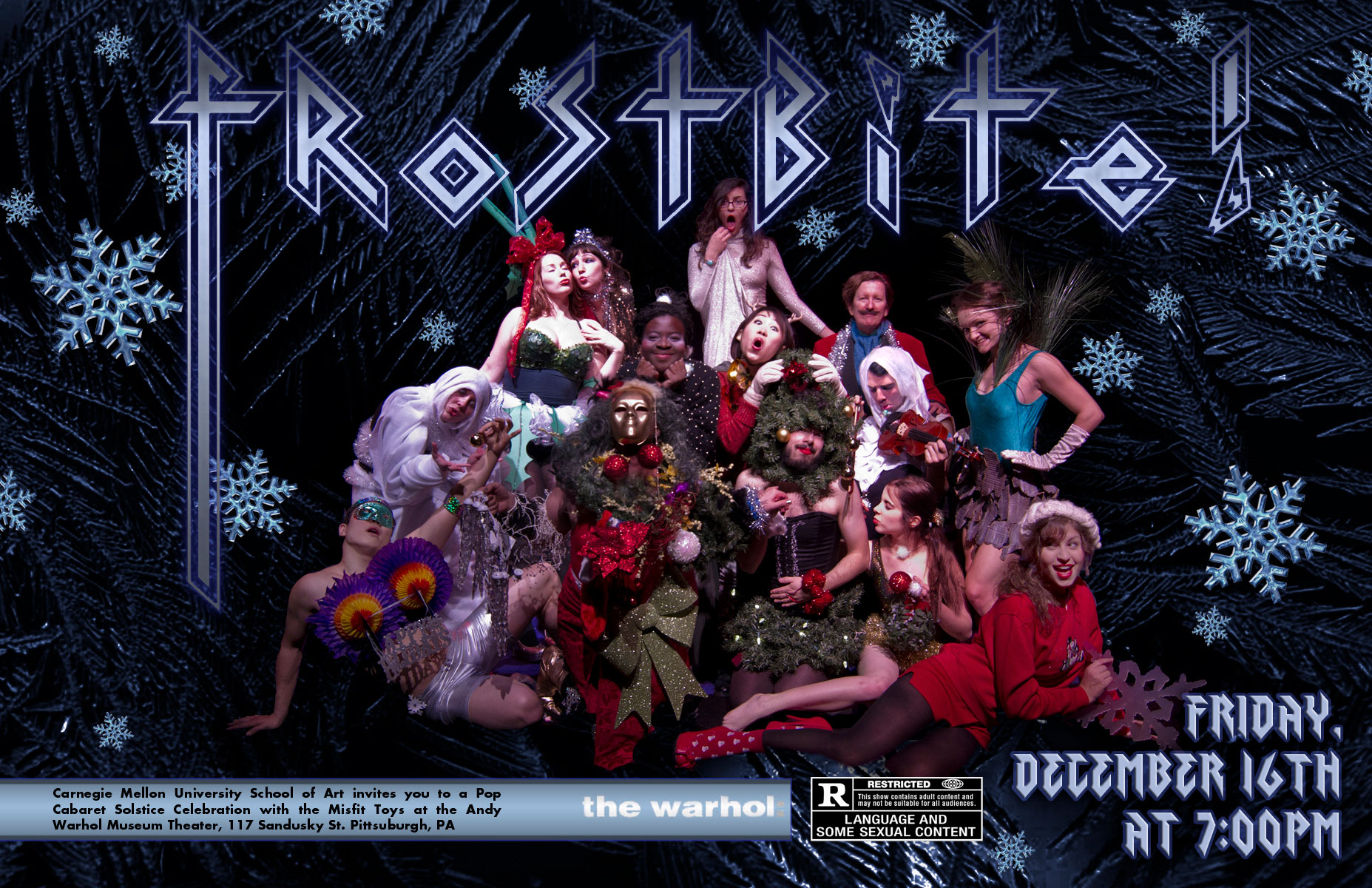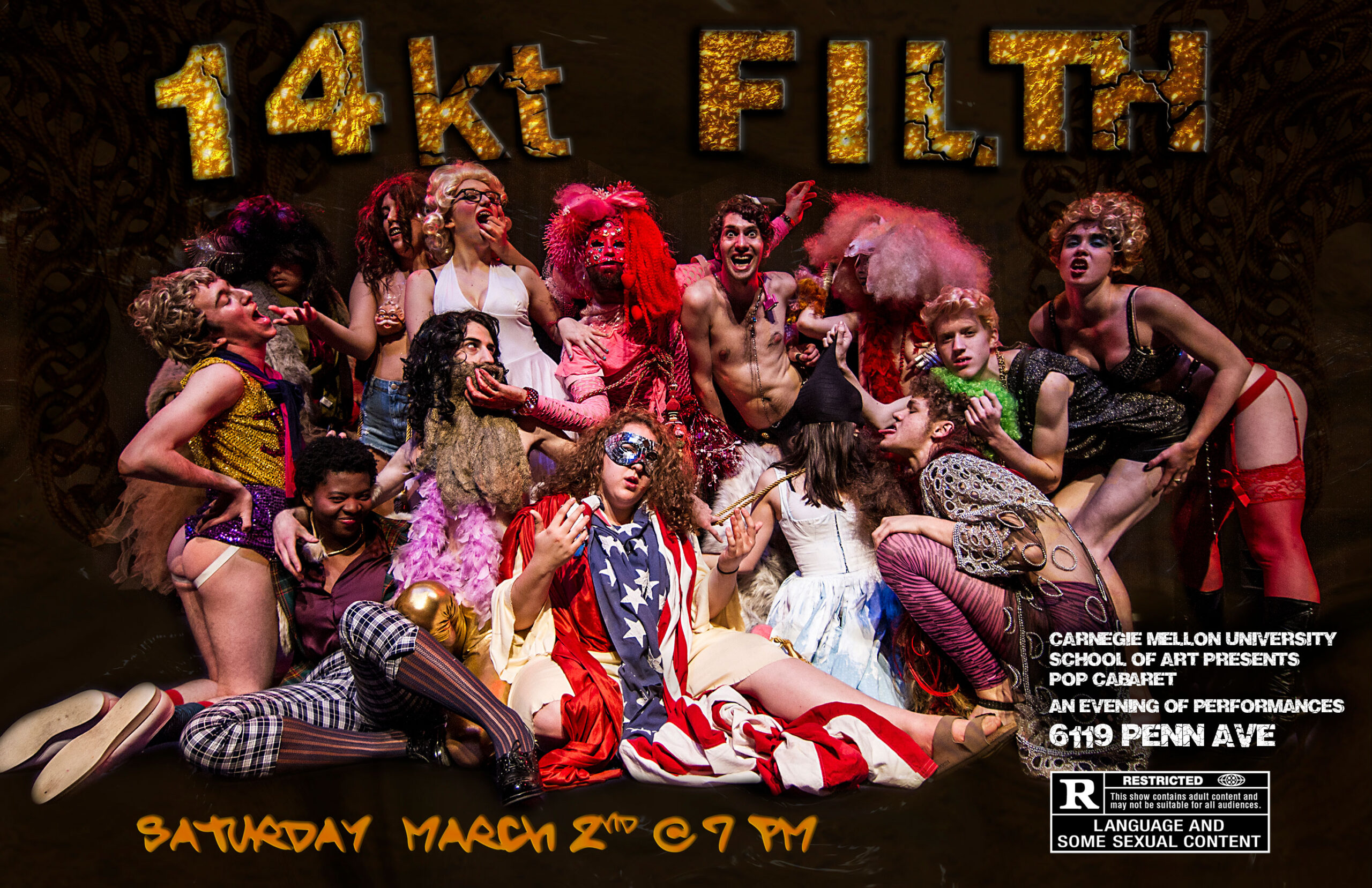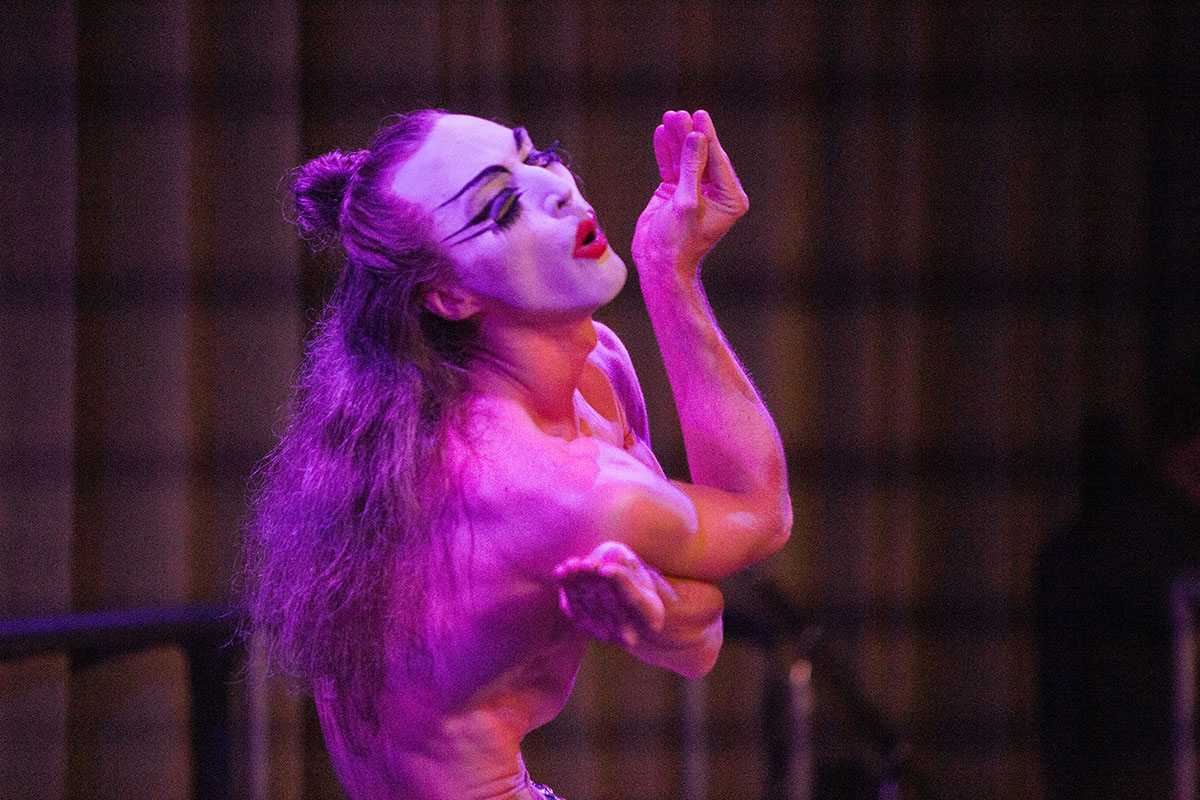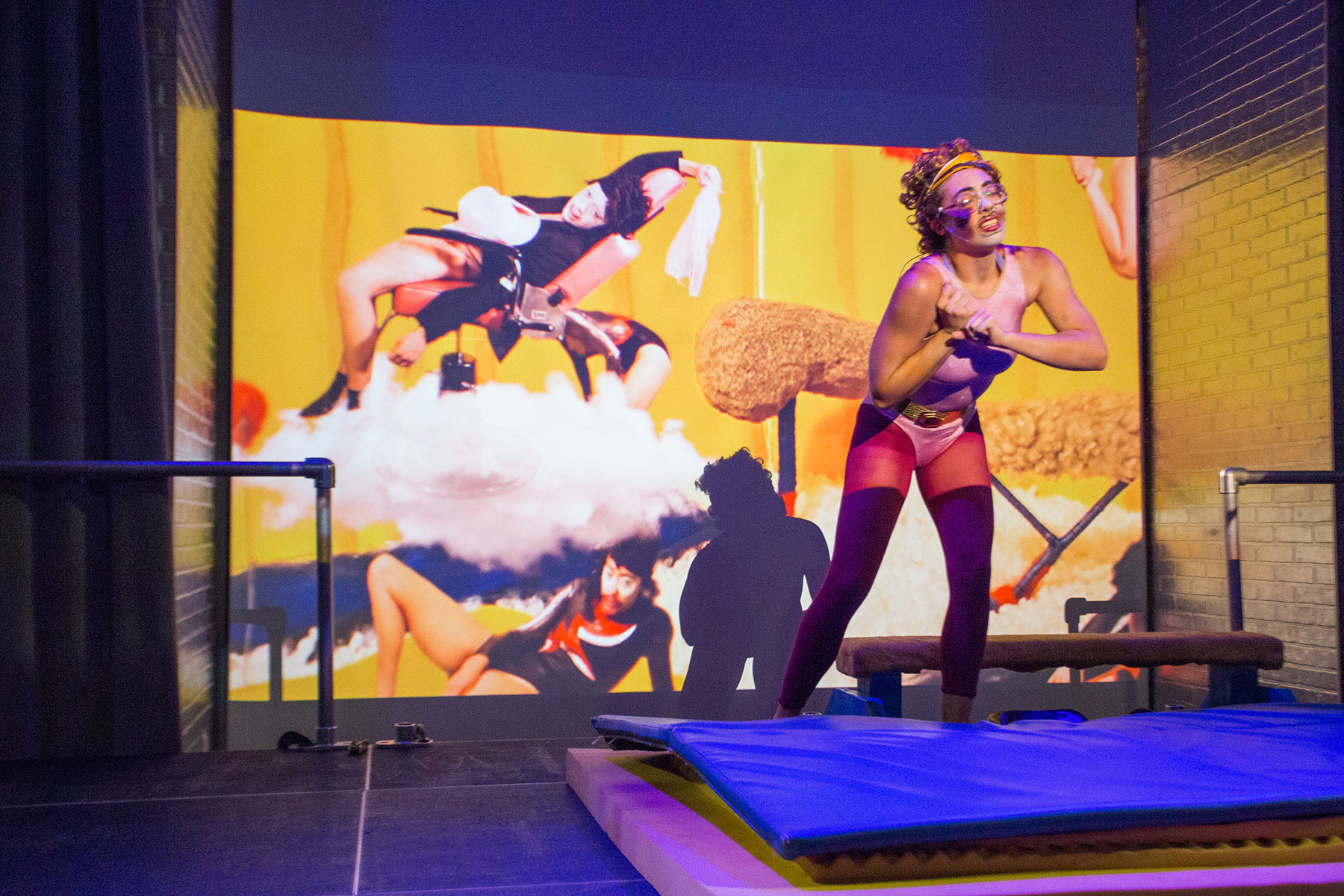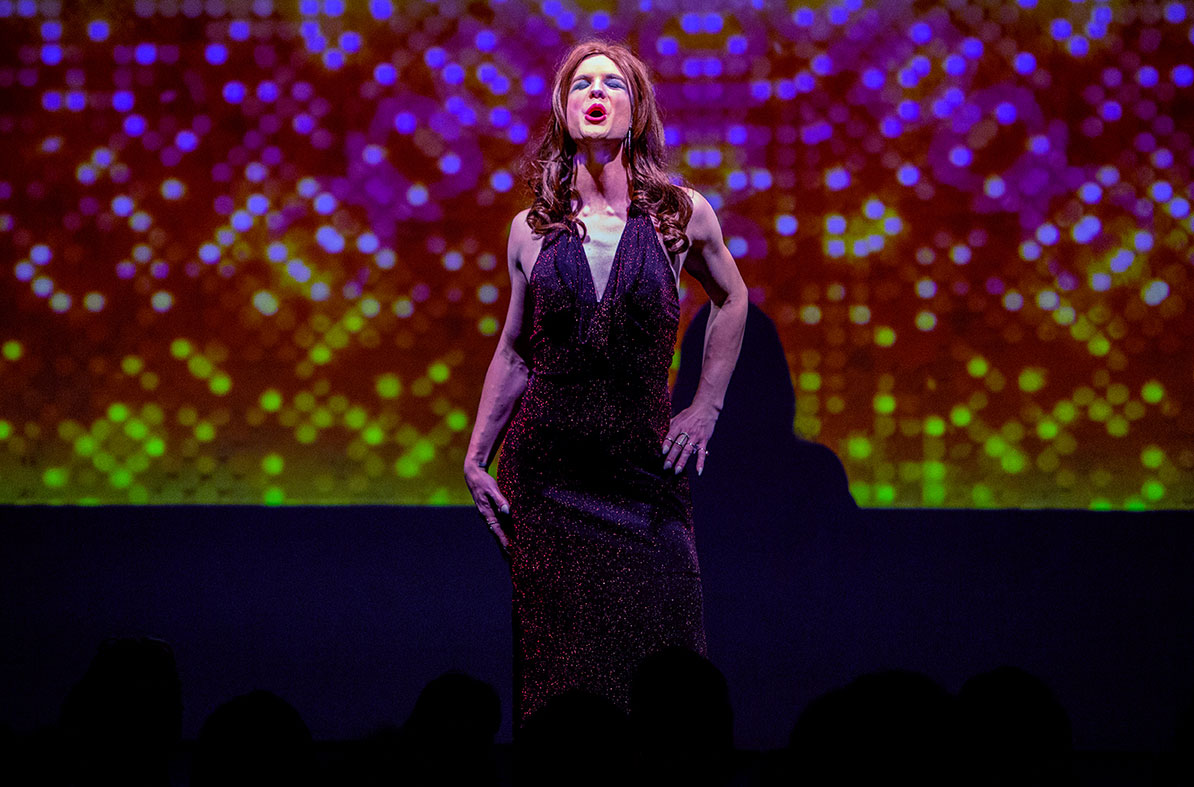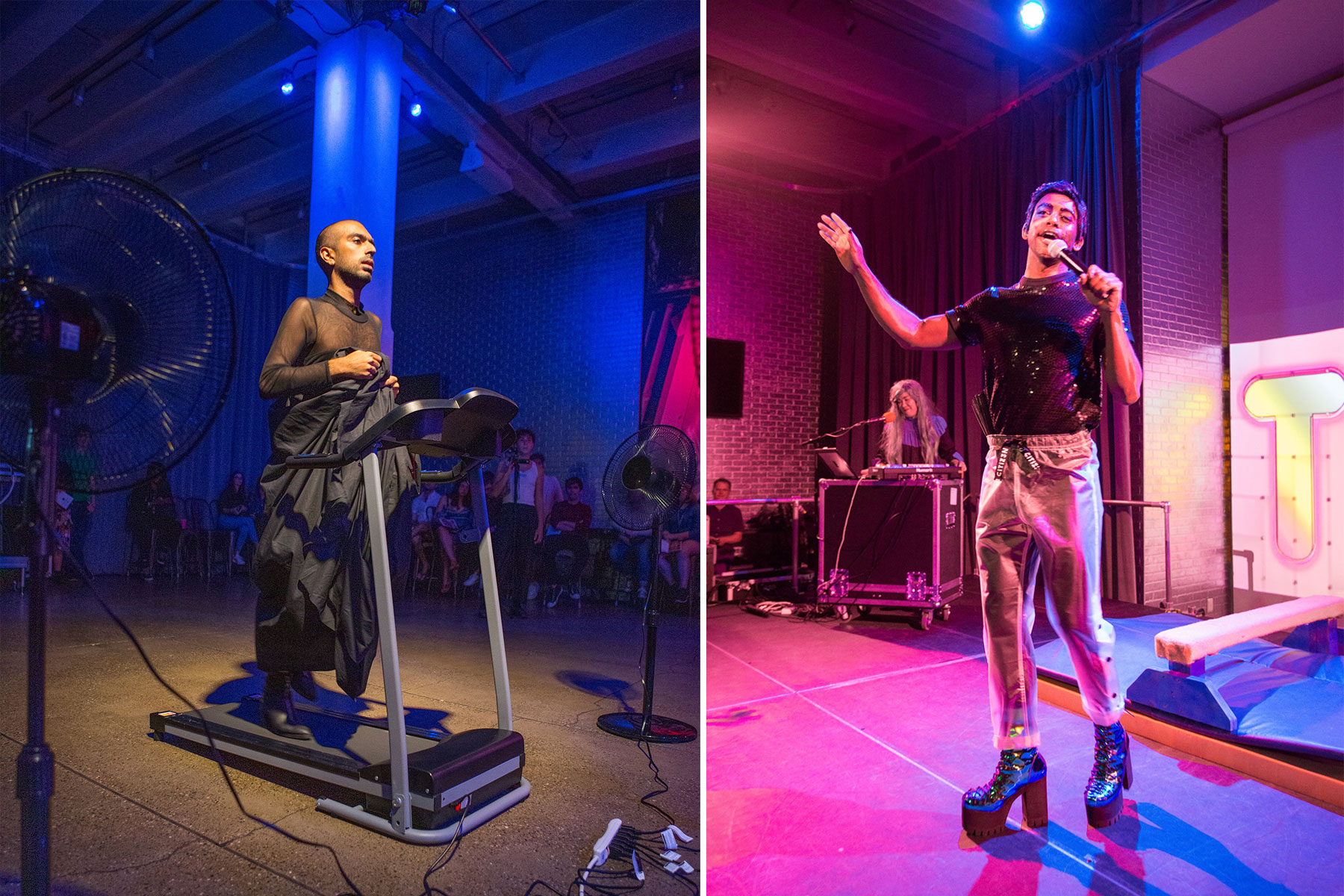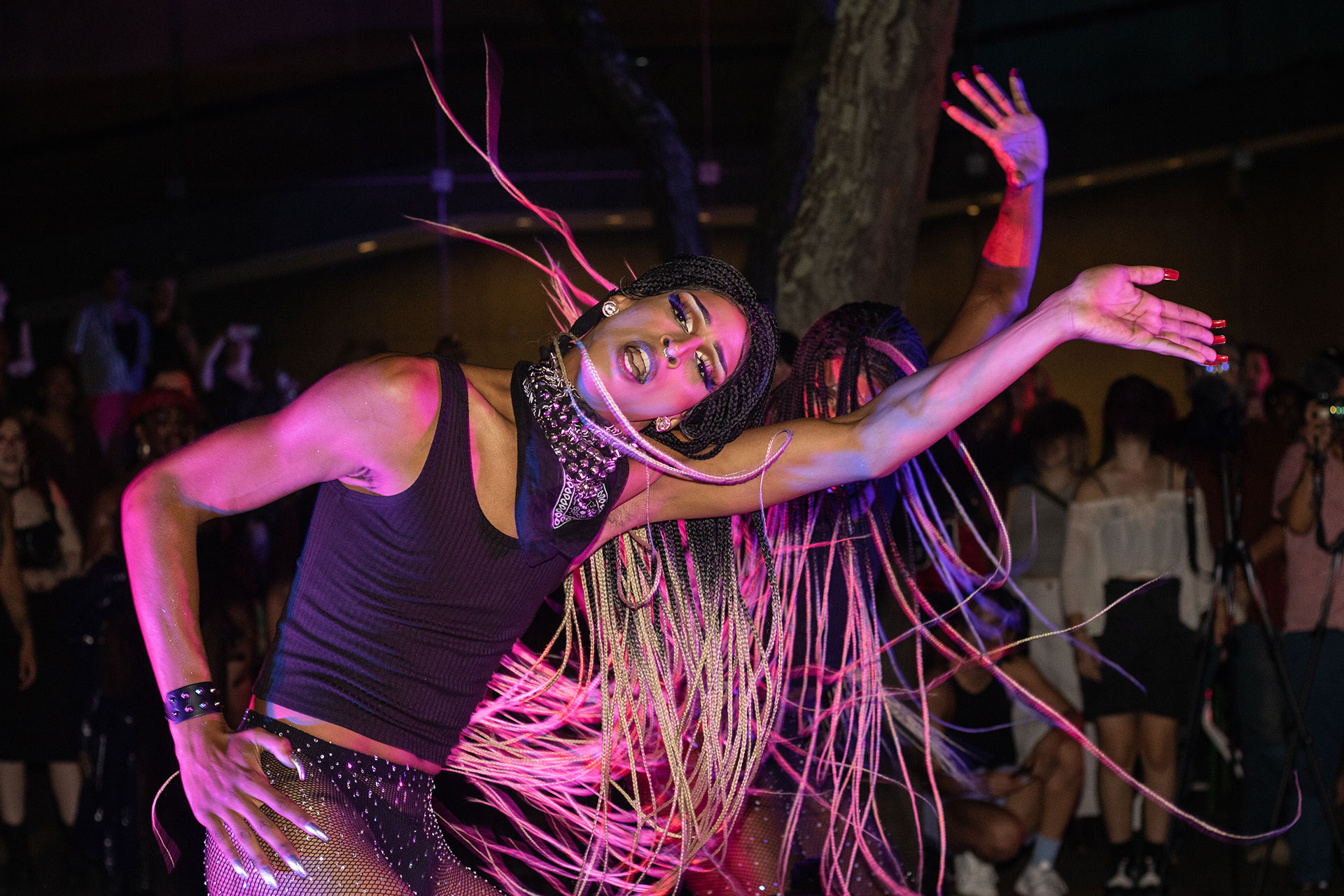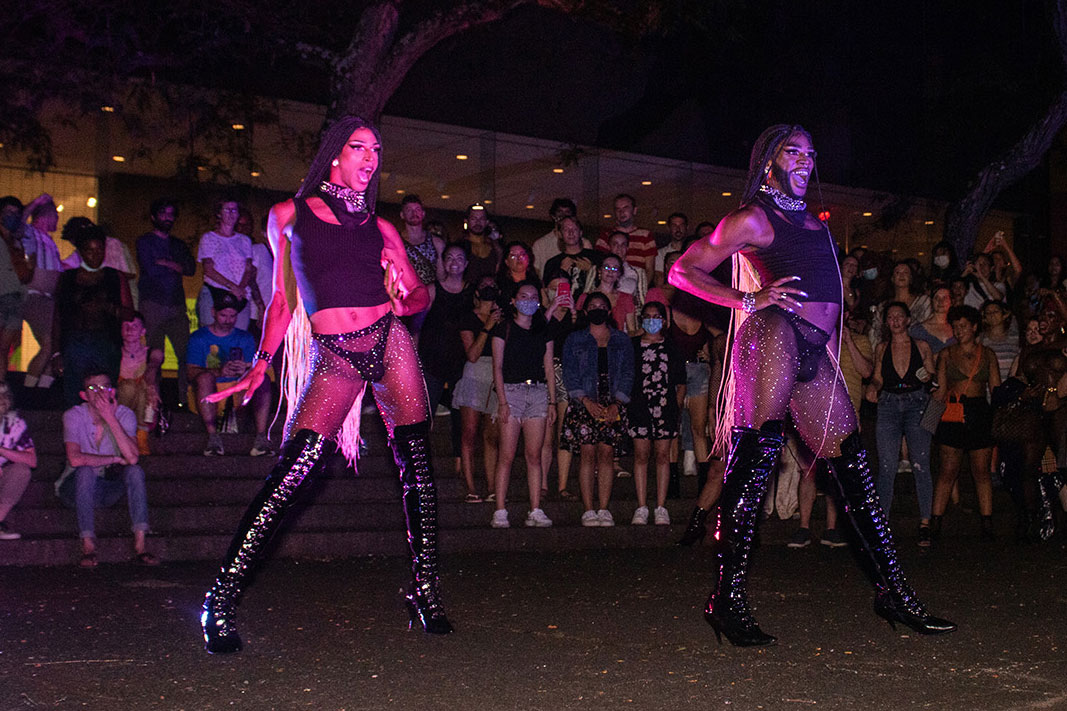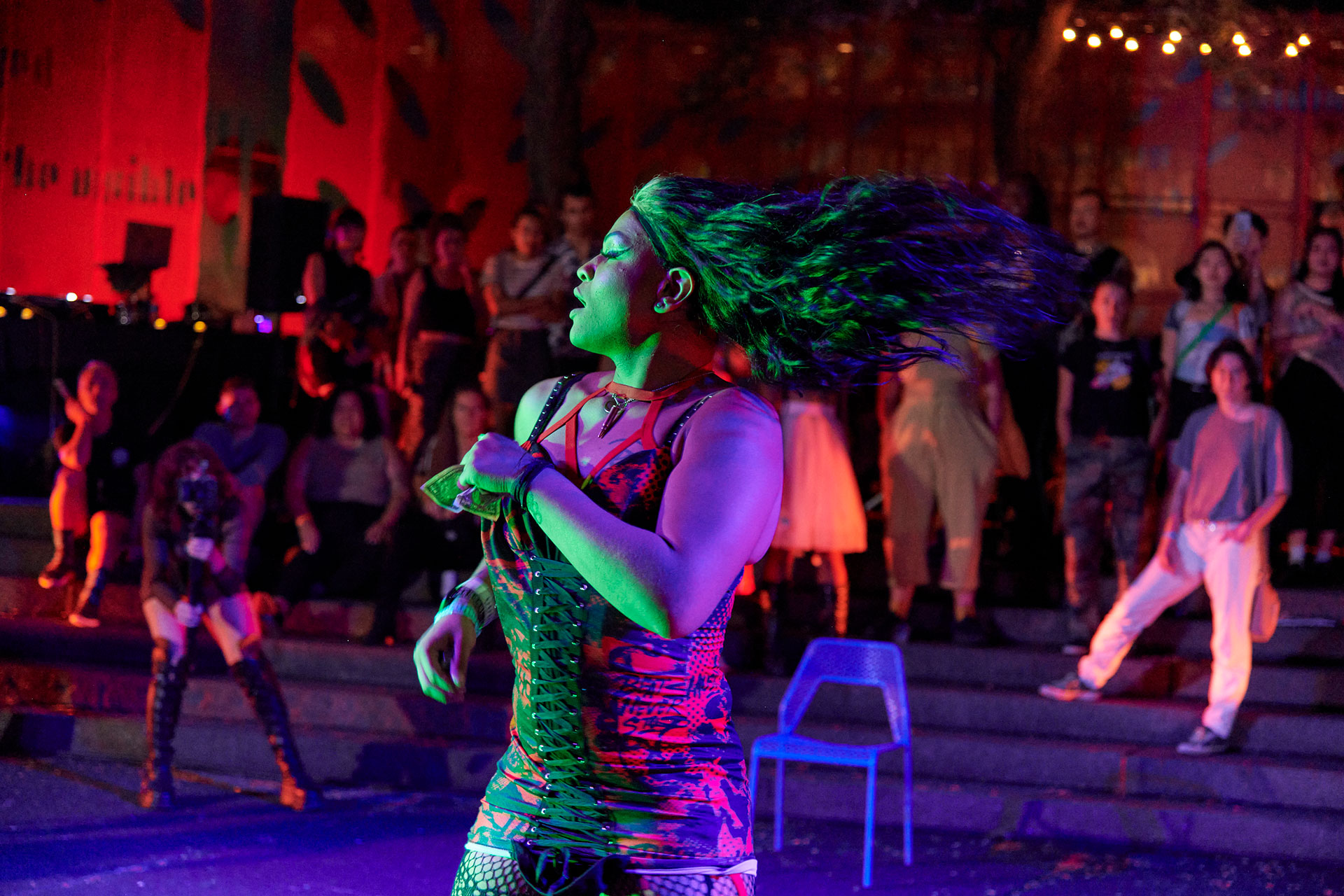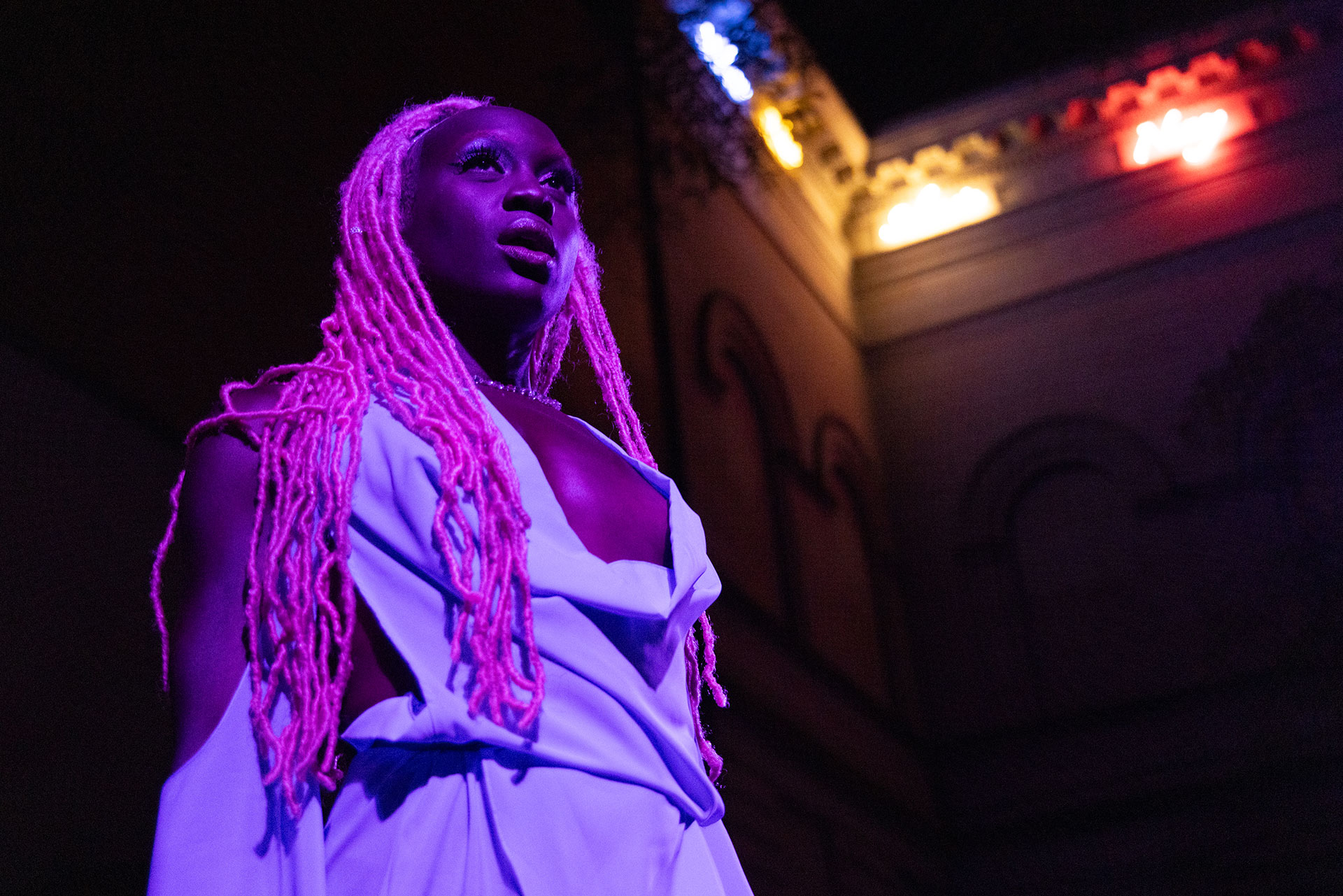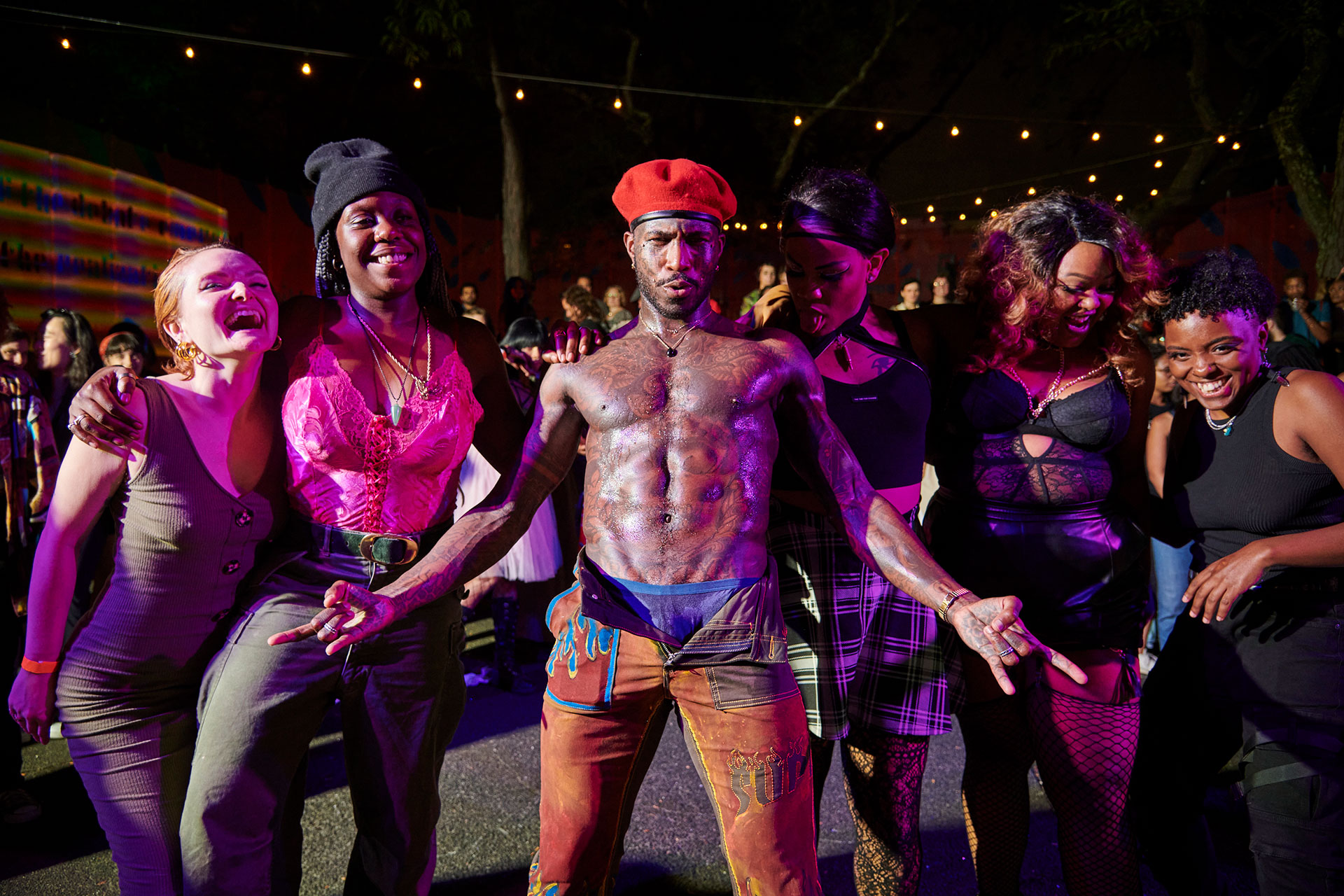
What began as a one-time event in 2013 has stood for more than a decade as a cornerstone of queer art in Pittsburgh, bringing together local and national artists for an annual celebration of community.
TQ Live! is a party. It’s a performance. It’s a space for and by queer artists. “TQ Live! takes play very seriously,” said Joseph Hall, Executive Director at Kelly Strayhorn Theater. Hall is the event’s longtime emcee and co-curator alongside School of Art Professors and collaborators Suzie Silver and Scott Andrew, and DJ and artist sarah huny young. When the annual event convenes for the tenth time on September 13, taking over the Sculpture Courtyard at the Carnegie Museum of Art (CMOA), it will once again invite people across Pittsburgh to bring their freest selves to a night of performance under the stars. “It’s really about that vulnerability, that trust, that connection, and then going on a chaotic, celebratory journey together,” Hall said.
What we call TQ Live! today was, in its earliest form, a School of Art performance art class called Pop Cabaret taught by Professors Silver and Andrew, then a graduate student. The class was novel for taking students off campus to learn and work in the theater of the Andy Warhol Museum. “It really felt like a new outlet for us to express ourselves and to try new things,” remembered Mitsuko Clarke-Verdery (BFA ’14). “Suzie and Scott really encouraged us to think expansively, to go crazy or go wilder, think more out of the box.” Offered for both Art and non-Art majors between 2011 and 2016, the Vaudeville-inspired format culminated in a showcase each semester when students presented solo, duo, or group performances to an audience of mostly faculty and students, but also the public. Pieces ranged from comedic skits to more conceptual work, like the “intense endurance test” of Clarke-Verdery dragging a cinderblock tied her hair around the stage.
“It was always interesting to see how the individual students became a collective,” said Ben Harrison, Senior Director of Performing Arts and Programming at the Warhol. “By the end of the class, it really felt like there was a kindred spirit.” That spirit also defined Trans-Q Television (TQTV), another class Silver and Andrew taught for two semesters highlighting queer and trans artists, scholars, and performers in Pittsburgh, including bringing in guests like Janet Mock and Zachary Drucker. Students filmed performances and events around the city to edit into a series of episodes that still live on thanks to its digital format.
Harrison saw even greater potential in what Silver and Andrew were doing with Pop Cabaret and TQTV — something akin to Warhol’s own performance community at The Factory. To coincide with two exhibitions at the museum in 2013 featuring Genesis Breyer P-Orridge and Caldwell Linker, Harrison pitched an evening of cabaret theater focused on LGBTQ+ artists. Silver and Andrew saw it as an opportunity to create a venue for shorter-form performances by local artists that spanned a range of interests. “The reason why I’m here still, and the reason why I do any of this kind of work, is because I want Pittsburgh to be a place that retains interesting people,” Andrew said. Hall was a featured performer at that first TQ Live! His duet with dancer and choreographer Jasmine Hearn mixed voguing with spelling words to create a “spelling ball” complete with costume changes.
“I never knew it was going to be more than a one-off,” said Silver, who was on sabbatical from the School in 2014, the year that would have been the event’s second edition. Silver was part of the interdisciplinary arts community that thrived in Chicago during the 1980s and early `90s, particularly in artist-run spaces like Club Lower Links — a creative incubator that notably also produced humorist David Sedaris. “I think that ever since then, I’ve always been trying to recreate that feeling, that sense of community and place,” Silver explained. “It’s a camaraderie.”
When it did return in 2015, TQ Live! grew to standing room only, packed with audiences who came to see a one-of-a-kind, one-night-only variety show of experimental dance, drag, theater, poetry, and spoken word. Some acts simply defied explanation altogether. “The Silky Shoemaker performance was legendary,” remembered Silver. “It’s impossible to articulate, actually. It was just so sublime.” Hall was emceeing the multi-hour lineup, orchestrating moments for audience participation between the transitions on stage, including inviting attendees up to Double Dutch jump rope or to claim prizes, like an outrageous wig. “I love when audience members actually become the show themselves,” he said. By 2019, TQ Live!’s success had outgrown the theater, moving instead to the museum’s entrance space, where it took on more of a nightclub feel.
And then the pandemic hit.
After the pause of 2020, the moment was right for TQ Live! to find a new home for 2021 at CMOA, where it now takes place in the open-air sculpture courtyard. The move allowed the event to expand its audience from 150 to over 600 people, creating a more fluid, party-like atmosphere that invites guests to come and go as they please. It’s also now completely free to attend. “At the Warhol, there was a chance for more intimacy,” said Andrew. “A lot of the earlier stuff involved more students and grad students. We were a lot more tied to campus, in a way, and I think now we’ve really branched much further out into the community.”
Throughout its evolution, TQ Live! has retained its collaborative spirit. “It’s not always transparent or collaborative when curating something like this,” said Clarke-Verdery. “That is special to know that a group of people are working really hard to make this event happen.” Silver and Andrew work closely each year with Hall and young, each bringing new voices and perspectives to the stage. As a DJ and artist deeply integrated into Pittsburgh’s queer nightlife scene, young has been instrumental in broadening the event’s reach to include more BIPOC queer performers and audiences since coming on board in 2021. “huny has a really keen view of what’s going on within the spectrum of queer music nationally,” said Andrew. “She’s brought in amazing people who then have continued to blow up and get bigger and bigger after being here.”
“It’s about people who don’t necessarily have big stages like this to perform on,” young said. “That’s always really important to me, people who just deserve the experience.” New York City-based drag duo The Dragon Sisters headlined the event in 2021, after also releasing their first studio album that year. Their electric performance was accompanied by a satellite event on campus, featuring their visual album projection-mapped onto the side of the College of Fine Arts building and watched by a crowd of over 100 people out on the lawn of The Cut. “Two extremely tall, beautiful, statuesque, Black gay men with long blonde braids down to their thighs,” said young. “And they’re fantastic, classically trained dancers. And they can sing. People were gagged.”
A marker of the event’s more recent editions, young introduced the concept of themes to the curation, adding new possibilities for creativity and cohesion. Themes have included “Circus” (2021), “Kink” (2022), and “Fight Club” (2023). “This year, the theme was kind of baked in, because it’s the 10th Anniversary,” said young, who also designs the visual identity to signify each year, mainly gold, glitter, and diamonds for 2024. This year’s edition will feature a headline performance by Ahya Simone, a classically trained harpist from Detroit known for integrating R&B, soul, jazz, and experimental elements into her work. The event will also see the passing of the emcee torch from Hall to musical artist Lys Scott, signaling the beginning of a new chapter in TQ Live!’s history.
Throughout that history, the event has always taken place intentionally early in the fall semester. For students coming to Pittsburgh, TQ Live! can be the first place where they are welcomed into the embrace of a queer community. “I started calling it a homecoming, because in my mind, that’s what it is,” explained Andrew. It’s a feeling shared by audiences and performers alike. “They need the affirmation,” said Clarke-Verdery, who also headlined the 2022 event with her partner Anya Clarke-Verdery. “That’s important to keep going as a queer artist.”
In many ways, young is the inheritor and future catalyst of all that Silver, Scott, and Hall have devoted to TQ Live! for so many years, outside of their professional lives and only because they knew how vital it is for a city to celebrate queer art. “For one of the most monumental presentations of queer performance in Pittsburgh to be reaching a 10th anniversary is extremely special,” young said. “It will never be smaller than it is. It can only get bigger.”

